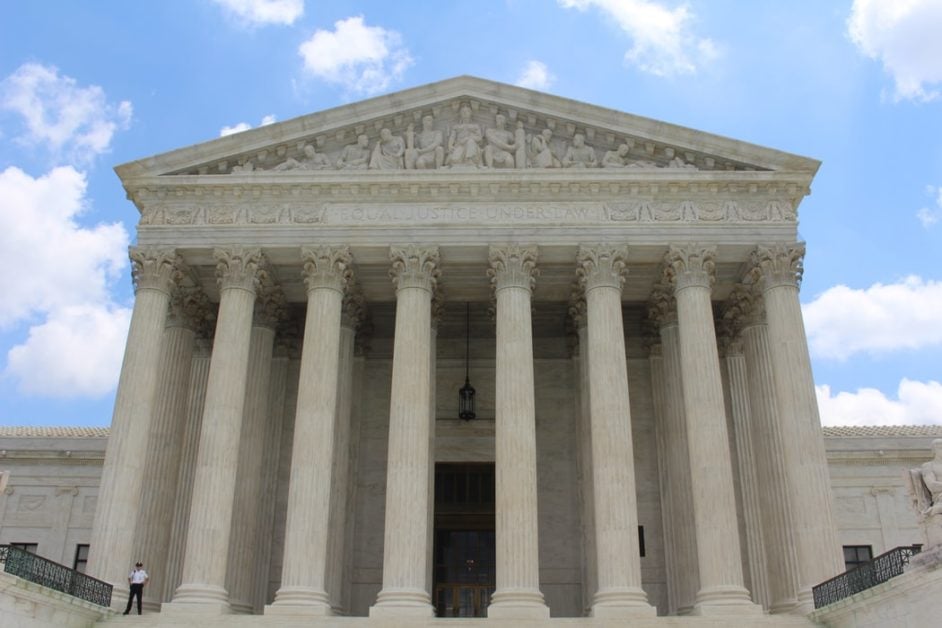
Best Ohio Employment Discrimination Attorney Answer: If I win my wrongful termination case, will my employer have to pay my attorneys’ fees? Will my company have to pay my attorney on top of my settlement? How much does it cost to pay a lawyer to sue my job for discrimination and harassment? Can I get my former company to pay my lawyer in addition to the settlement amount? Can I Make My Employer Pay My Attorney Fees?
As our regular readers know, here at Spitz, The Employee’s Law Firm we have a no-fee
guarantee, where we guarantee that we will not charge you any attorney fees or
cost unless we are able to successfully recover a judgment or settlement on
your behalf. We also offer a free
initial consultation for all of our potential new clients. As such our
clients don’t really have to worry about attorneys’ fees unless we are able to
recover, and even then, there are situations where the discriminating employer
can be forced to foot the bill for our attorney fees! (For more information
about our free initial consultations and our no-fee guarantee call the right attorney!)
To understand whether or in
what circumstances that your employer may have to pay your attorneys’ fees, the
best place to start is with the underlying rule that no party has to pay the
other party’s lawyers unless expressly required to do so by statute. This is
called the American Rule, which was explained by the United States Supreme CourtinBotts v. Asarco LLC, which provides:
“Our basic point of reference when considering the award of
attorney’s fees is the bedrock principle known as the American Rule: Each
litigant pays his own attorney’s fees, win or lose, unless a statute or
contract provides otherwise.” Hardt v. Reliance Standard Life Ins. Co., 560
U.S. 242, 252–253, 130
S.Ct. 2149, 176
L.Ed.2d 998 (2010) (internal quotation marks omitted). The American
Rule has roots in our common law reaching back to at least the 18th century,
see Arcambel v. Wiseman, 3 Dall. 306, 1 L.Ed. 613 (1796),
and “[s]tatutes which invade the common law are to be read with a presumption
favoring the retention of long-established and familiar [legal] principles,” Fogerty
v. Fantasy, Inc., 510 U.S. 517, 534, 114 S.Ct. 1023, 127 L.Ed.2d 455 (1994)
(internal quotation marks and ellipsis omitted). We consequently will not
deviate from the American Rule “‘absent explicit statutory authority.’ “ Buckhannon
Board & Care Home, Inc. v. West Virginia Dept. of Health and Human
Resources, 532
U.S. 598, 602, 121
S.Ct. 1835, 149
L.Ed.2d 855 (2001) (quoting Key Tronic Corp. v. United States, 511 U.S.
809, 814, 114 S.Ct. 1960, 128 L.Ed.2d
797 (1994)).
6 We have recognized departures from the American Rule only
in “specific and explicit provisions for the allowance of attorneys’ fees under
selected statutes.” Alyeska Pipeline Service Co. v. Wilderness Society, 421
U.S. 240, 260, 95
S.Ct. 1612, 44
L.Ed.2d 141 (1975). Although these “[s]tatutory changes to [the
American Rule] take various forms,” Hardt, supra, at
253, 130
S.Ct. 2149 they tend to authorize the award of “a reasonable attorney’s
fee,” “fees,” or “litigation costs,” and usually refer to a “prevailing party”
in the context of an adversarial “action,” see, e.g., 28
U.S.C. § 2412(d)(1)(A); 42
U.S.C. §§ 1988(b), 2000e–5(k); see generally Hardt, supra, at
253, and nn. 3–7, 130
S.Ct. 2149 (collecting examples).
Okay, now with that foundation set lets look at the several ways that there
are for an employment discrimination, sexual harassment, FMLA, or other type of employment case to
resolve. Obviously, there is always the risk of losing the case, either by
having the judge dismiss it as a matter of law or have the jury decide in favor
of the employer and against the employee. Should this happen, the
employee will not have to pay any of our attorneys’ fees under our “no
recovery, no fees” policy. The most common outcome is to settle the employment
claim. Given the significant risk and costs involved, many employers and
employees agree to settle a case before it ever reaches a jury. In reaching a
settlement, your employment attorney will get authority from you to settle for
a global all-inclusive amount and then negotiate with the employment defense
lawyer representing the employer. This all-inclusive amount, once agreed to by
both attorneys with the authority given by their clients, is binding on both
parties and includes the payment of the attorneys’ fees and costs. Some clients
will ask after the settlement if we can go back and get the employer to pay for
attorney fees’ and costs, but there are two problems: (1) at this point, the
settlement agreement – even though not in writing – is binding on both parties;
and (2) the agreement – because it is an all-inclusive amount – already
includes payment of fees and costs (it is important to remember that if you
have a claim that provides for recovery of attorneys’ fees, this was part of
the negotiations and risks considered in reaching the all-inclusive settlement
amount).

So, if the case does not settle and is not lost (by judge or jury), the
outcome would be a jury verdict in favor of the employee. At that point, the
judge will look to the laws and statutes to see if there is an exception to the
American Rule. Under the federal Family and
Medical Leave Act (“FMLA”), Fair Labor Standards Act
(“FLSA”) (which addresses overtime and minimum wage claims); and Uniformed Services Employment and Reemployment Rights Act
(“USERRA”) (which prohibits civil employment
discrimination against our military),
a winning employee can recover payment for his or her lawyer. On the other
hand, a winning employer will not be able to recover its attorneys’ fees (but
may be entitled to limited costs reimbursement). The criteria for recovering attorney fees differ
based on whether a claim is brought under federal law under Title VII of the Civil Rights Act of 1964, or if the claims are brought under state
law under R.C.§4112. Both of these laws prohibit employment
discrimination based on an individual’s employees’ race, gender, pregnancy, national origin, disability, religion, or ancestry. While these laws are similar in
many respects they also differ in important areas, one of those areas being the
award of attorney fees. Let’s take a look at the criteria for awarding attorney
fees under each law.
Let’s start with federal law, under Title VII. First, it is important to
realize that there are no caps on attorney fees under Title VII or the other
federal laws identified above. Thus, an employee is able to recover any amount
of reasonable attorney fees, but the court determines what fees are reasonable.
Title VII of the Civil Rights Act of 1964 (42 U.S.C.A. § 2000e-5(k)) expressly
provides that a plaintiff who is successful in an action brought under Title
VII is entitled, at the court’s discretion, to an award of reasonable attorneys’
fees as part of the costs in the action. For instance, a plaintiff who recovers
monetary damages from a defendant for retaliatory discharge would be considered
a successful plaintiff under the statute.
To determine reasonable attorney’s fees, a district court is required to “begin[
] by determining ‘the fee applicant’s lodestar, which is the proven number of
hours reasonably expended on the case by an attorney, multiplied by his
court-ascertained reasonable hourly rate.’” Adcock-Ladd
v. Sec’y of Treasury, 227
F.3d 343, 349 (6th Cir. 2000)). After the court has determined the employee’s “lodestar” the court will
then adjust the attorney fees based on several factors, the most important of
which “is the degree of success obtained.” Hensley
v. Eckerhart, 461 U.S.
424, 436, 103 S.Ct. 1933, 76 L.Ed.2d 40 (1983)).
The biggest issue with attorney fees under federal law is that the amounts
are awarded at the court’s discretion. This means that it is up to the court to
decide if they want to award attorney fees or not. This makes it very difficult
to predict what the court will award attorney fees as the decision may change
from judge to judge and situation to situation. Just as with everything in life
there is never a guarantee of a particular outcome.
Now, let’s look at the criteria for awarding attorney fees under Ohio law.
Under state law, attorney fees are only awarded when the court finds that
punitive damages are appropriate. See. Rice v. CertainTeed Corp., 84 Ohio St. 3d 417, 1999-Ohio-361, 704 N.E.2d 1217, 81
A.L.R.5th 763 (1999). (Where punitive damages are found to be appropriate,
attorney’s fees can also be awarded.) See also. Sutherland
v. Nationwide Gen. Ins. Co., 102 Ohio App. 3d 297, 657 N.E.2d 281 (10th Dist.
Franklin County 1995). Most Ohio courts have held that the jury must award
punitive damages before an award of attorney fees can be granted. In Digital
& Analog Design Corp v. N. Supply Co., 62 [63] Ohio St.3d 657 [590 N.E.2d 737] (1992), the court stated:
[T]he requirement
that a party pay attorney fees is a punitive (and thus equitable) remedy that
flows from a jury finding of malice and the award of punitive damages. Without
a finding of malice and the award of punitive damages, plaintiff cannot justify
the award of attorney fees, unless there is a basis for sanctions under Civ.R.
11. See, also, Davis v. Tunison, 168
Ohio St. 471, 477 [155 N.E.2d 904] (1959); Henry
v. Akron, 27 Ohio App.3d 369, 371 [501 N.E.2d 659] (9th Dist.1985); Howard v. Urey, 11th Dist. Trumbull No.
3889, 1988 WL 94379 (Sept. 9, 1988). But see, Atram v. Star Tool & Die Corp., 64 Ohio App.3d 388, 392 [581
N.E.2d 1110] (8th Dist.1989), holding that punitive damages need not be
actually awarded, i.e., a finding that punitive damages could properly have
been awarded is sufficient to support an attorney fees award.
Similar to attorney fees awarded under Title VII, Ohio courts seek to award
only reasonable attorney fees. In determining the amount of fees to award, the
court must first determine the “lodestar” figure. As we discussed above the “lodestar”
figure is found by multiplying the number of hours worked on the case by a
reasonable hourly rate. See. Turner
v. Progressive Corp.
(2000), 140 Ohio App.3d 112, 116, 746 N.E.2d 702; Fahey
Banking Co. v. Rees Ent. Inc., Marion App. No. 9–09–40, 2010–Ohio–4172, ¶ 26; Landmark
Disposal, Ltd. v. Byler Flea Mkt., Stark App. Nos.2005CA00291 and 2005CA00294, 2006–Ohio–3935, ¶ 13. After determining the lodestar figure,
the trial court may modify that number by applying the factors listed in Rule
1.5 of the Ohio Rules of Professional Conduct. See Sup. R. 71 (“Attorney fees
in all matters shall be governed by Rule 1.5 of the Code of Professional
Responsibility”); Landmark Disposal,
Ltd., supra at ¶ 14. The factors in Rule 1.5 are used to determine the
reasonableness of an attorney fee and are as follows:
(1) the time and
labor required, the novelty and difficulty of the questions involved, and the skill requisite to perform the
legal service properly;
(2) the
likelihood, if apparent to the client, that the acceptance of the particular
employment will preclude other employment by the lawyer;
(3) the fee
customarily charged in the locality for similar legal services;
(4) the amount involved and the results obtained;
(5) the time
limitations imposed by the client or by the circumstances;
(6) the nature and
length of the professional relationship with the client;
(7) the
experience, reputation, and ability of the lawyer or lawyers performing the
services;
(8) whether the
fee is fixed or contingent.
Ohio Prof. Con. R.
1.5 Kava
v. Boesch, 8th Dist.
Cuyahoga No. 95018, 2011-Ohio-617, ¶¶ 6-14.

After the court has examined these eight factors, it will adjust the amount
of attorneys’ fees to what the court considers to be a reasonable amount and
order the defendant, in this case, the discriminating employer, to pay it. The
major issue with attorney fees under Ohio law is that they are only awarded in
limited circumstances. An employee may win their case without winning punitive
damages (don’t worry the plaintiff can still recover other damages such as back
pay, and emotional distress damages to name a few). Punitive damages are
awarded by a jury, so it is extremely difficult to predict if and when a jury
will award them. In fact, a jury’s award of punitive damages may be even harder
to predict than a “judge’s discretion” under Title VII.
Like most things in the law and in life the possibility of an employee
recovering attorney fees from their discriminating employers depends on a lot
of different and complex factors. Still, At Spitz, The Employee’s Law Firm, we believe it
is important to be aware of and to consider every possible avenue of recovery
in order to ensure that our clients are made whole from the harm their employer
caused.
Discrimination and harassment that is based on race/color, religion, gender/sex, national origin, age, disability discrimination, and Military status is illegal under Ohio law R.C. § 4112.02, and federally under Title VII.
If you have been discriminated against based on your race, color, religion,
sex, military status, national origin, disability, age, or ancestry you should
not wait to call
the right attorney to schedule a free and
confidential consultation. Call our office at 866-797-6040. At Spitz, The Employee’s Law Firm, you will meet
with an expert employment law attorneys to find out what your legal rights are
and the best way to protect them.
If you are searching “I
need a lawyer because I was wrongfully fired or terminated;” or “I have been
discriminated against or harassed based on my …” race, national origin, gender, age, religion or disability; or even think that you might need an
employment lawyer, then it would be best to call the
right attorney to schedule a free and
confidential consultation. Call our office at 866-797-6040. Spitz, The Employee’s Law Firm and its attorneys
are experienced and dedicated to protecting employees’ rights and solving
employment disputes.
Disclaimer:
This employment law website is an advertisement. The
materials available at the top of this page and at this employment law website
are for informational purposes only and not for the purpose of providing legal
advice. If you are still asking, “How do I find the best employment lawyer to
sue my boss”, “What is my case worth” “do I have to pay my attorney if I lose”
or “I was fired today” it would be best for to contact an Ohio attorney to
obtain advice with respect to any particular employment law issue or problem.
Use and access to this employment law website or any of the links contained
within the site do not create an attorney-client relationship. The legal
opinions expressed at or through this site are the opinions of the individual
lawyer and may not reflect the opinions of Spitz, The Employee’s Law Firm, Brian Spitz,
or any individual attorney.
